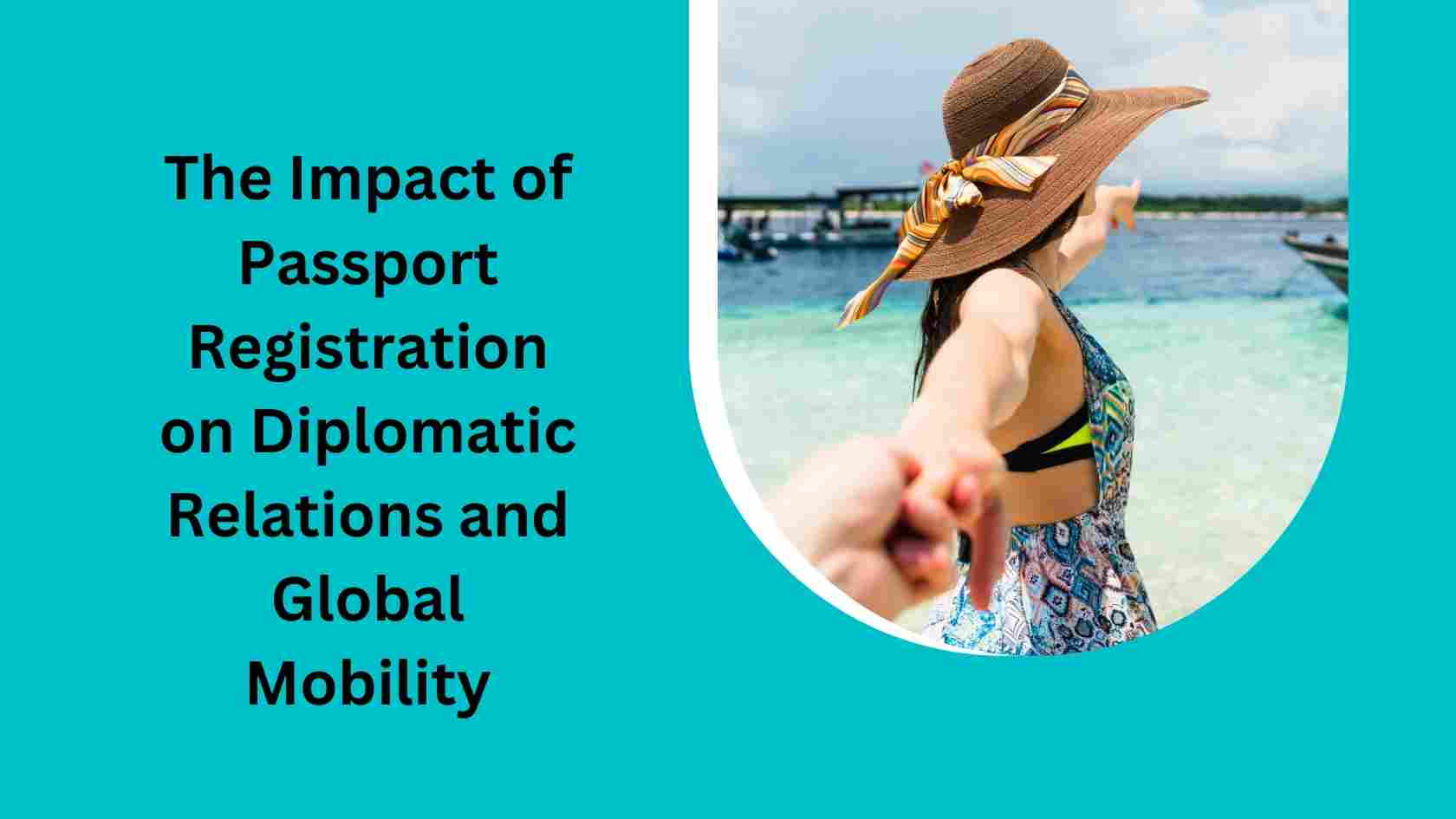Passport registration, although seemingly mundane, holds significant implications for diplomatic relations and global mobility. It serves as a cornerstone for international interactions, influencing the ease with which individuals traverse borders and fostering diplomatic ties between nations. This article delves into the multifaceted impact of Passport Registration Online on both diplomatic relations and global mobility, highlighting its role in shaping international cooperation and travel dynamics.
1. Facilitating Diplomatic Engagement:
Passport registration facilitates diplomatic engagement by establishing the identity and nationality of individuals involved in international affairs. Diplomatic personnel, including ambassadors, diplomats, and consular staff, rely on passports to assert their official status and access privileges granted by host nations. Proper registration ensures that diplomatic missions operate smoothly, enabling effective communication and negotiation between countries.
2. Enhancing Border Security and Immigration Control:
Effective passport registration enhances border security and immigration control measures, crucial components of maintaining diplomatic relations and global stability. By accurately documenting individuals’ movements across borders, authorities can monitor and manage immigration flows, detect security threats, and prevent illegal activities. Collaborative efforts in passport registration and data sharing between countries bolster international security efforts, fostering trust and cooperation among nations.
3. Promoting Global Mobility and Cultural Exchange:
Passport registration plays a pivotal role in promoting global mobility and facilitating cultural exchange initiatives. Through streamlined registration processes and visa facilitation programs, individuals can travel more freely across borders, contributing to enhanced people-to-people connections and fostering mutual understanding between nations. As a result, diplomatic relations are strengthened, and opportunities for economic, educational, and cultural cooperation are expanded.
4. Addressing Challenges of Migration and Refugee Movements:
Passport registration also influences how countries address challenges related to migration and refugee movements, which often have significant diplomatic implications. Proper documentation and registration of refugees and migrants enable governments and international organizations to provide essential assistance, protection, and resettlement services. Collaborative approaches to passport registration and refugee management contribute to humanitarian efforts, demonstrating solidarity and shared responsibility among nations.
5. Mitigating Risks of Identity Fraud and Document Forgery:
Passport registration is instrumental in mitigating the risks associated with identity fraud and document forgery, which can undermine diplomatic relations and compromise global security. Robust registration processes, including biometric data collection and verification, help authenticate individuals’ identities and detect fraudulent documentation. By maintaining accurate records of passport holders, governments can prevent unauthorized individuals from exploiting diplomatic privileges or engaging in criminal activities, thereby safeguarding national interests and maintaining trust among nations.
6. Supporting Crisis Management and Emergency Response:
During times of crisis or emergencies, such as natural disasters or political unrest, passport registration plays a crucial role in facilitating crisis management and emergency response efforts. Registered citizens can be efficiently located, evacuated, and provided with consular assistance and support when needed. Collaborative arrangements for passport registration and information sharing between countries enable swift coordination and cooperation in times of need, reinforcing solidarity and goodwill among nations and enhancing their capacity to respond effectively to emergencies on a global scale.
7. Addressing Issues of Statelessness and Human Rights:
Passport registration also intersects with broader issues of statelessness and human rights, which have significant diplomatic implications. By ensuring that individuals are registered and recognized as citizens of their respective countries, governments can prevent cases of statelessness and uphold individuals’ rights to nationality and legal protection. International cooperation in passport registration and documentation assists in resolving statelessness issues, promoting social inclusion, and advancing human rights agendas globally, thereby strengthening diplomatic relations based on principles of equality and justice.
Note: You can also Apply for Reissue of Passport
8. Harmonizing International Travel Regulations and Standards:
Efforts to harmonize passport registration procedures and standards contribute to smoother international travel experiences and facilitate cross-border mobility. Through initiatives such as the International Civil Aviation Organization (ICAO) standards for machine-readable passports and biometric data requirements, countries work towards interoperability and mutual recognition of travel documents. Consistency in passport registration practices enhances the efficiency of border controls, reduces administrative burdens for travelers, and fosters a more seamless and interconnected global travel environment, ultimately enhancing diplomatic relations and promoting economic growth.
Conclusion:
In conclusion, the impact of passport registration on diplomatic relations and global mobility is multifaceted and far-reaching. Beyond its role in facilitating diplomatic engagement, enhancing security, and promoting mobility, passport registration also addresses challenges related to identity fraud, crisis management, statelessness, and human rights. Collaborative efforts to standardize registration procedures and uphold international travel regulations further reinforce the interconnectedness of nations and underscore the importance of effective passport registration systems in fostering cooperation, security, and shared prosperity on a global scale.





